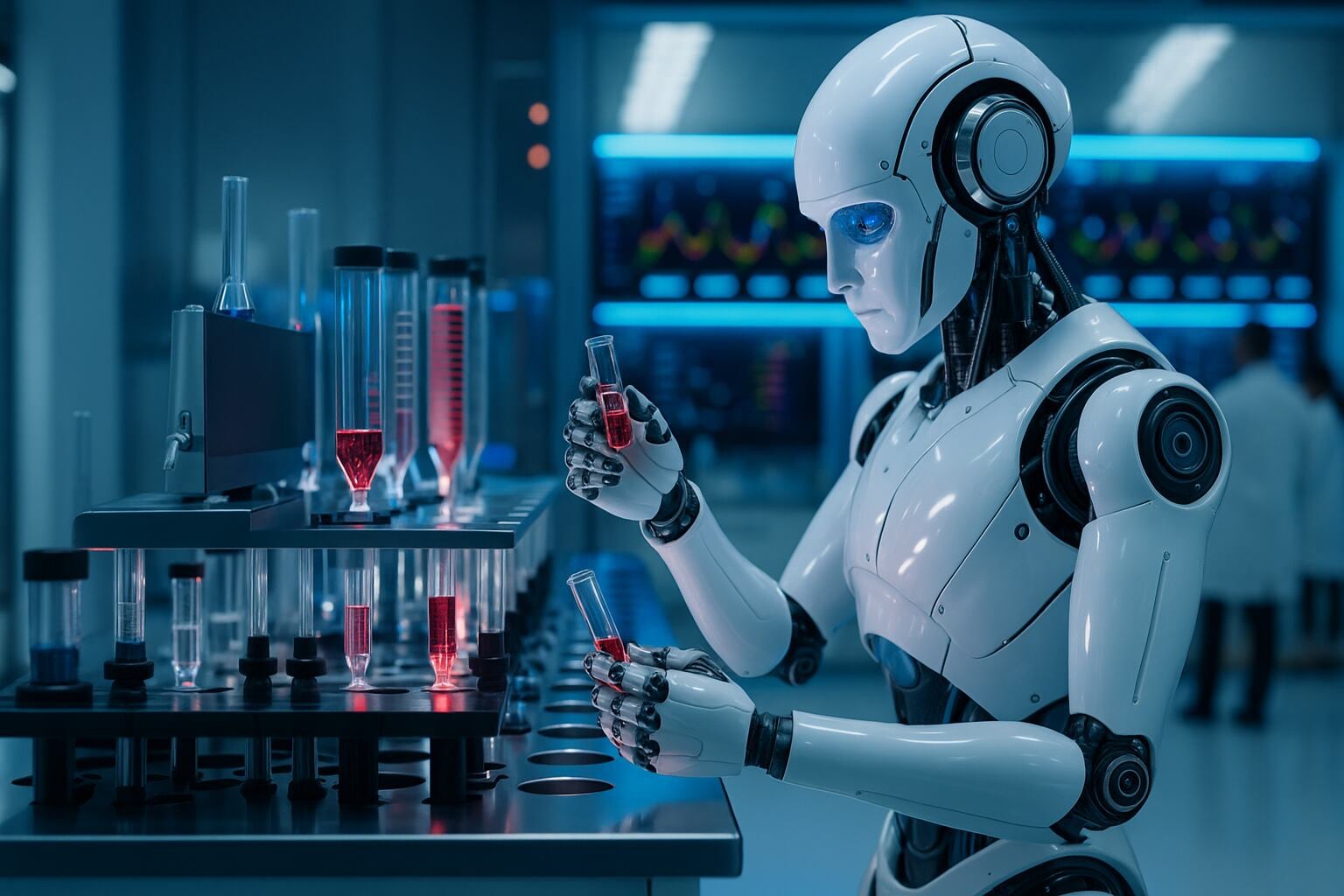
South Korea's Push for AI-Driven Drug Development
South Korea is making significant strides in the field of artificial intelligence (AI) by positioning itself as an AI-driven government. This initiative includes expanding support for AI-powered drug development, a sector that has attracted substantial global investment. AI is playing an increasingly vital role across the pharmaceutical value chain, from identifying therapeutic candidates to conducting clinical trials and offering personalized treatments. The South Korean government aims to cut down both the time required for drug development—typically over a decade—and the costs, which are estimated at around 2 trillion won ($1.46 billion), by more than half.
Growth of the AI Drug Discovery Market
Pharmaceutical and biotech companies worldwide are leveraging AI to analyze extensive datasets, such as chemical compound libraries and disease-related protein structures, with speed and accuracy that far surpass human capabilities. According to the Korea Health Industry Development Institute, the global AI drug discovery market is expected to grow from $902.7 million (1.26 trillion won) in 2023 to $2.89 billion (4.06 trillion won) by 2028.
Government Initiatives and Funding
On July 4, lawmakers announced that the National Assembly’s Health and Welfare Committee approved a supplementary budget proposal jointly drafted by the Ministry of Health and Welfare and the Ministry of Science and ICT to support AI-based drug development. The funding will be used for initiatives aimed at building AI-enabled preclinical and clinical modeling capabilities and accelerating the development of antibody-based “biobetter” drugs through AI applications.
One key initiative, allocated 2.18 billion won ($1.57 million) this year, focuses on developing AI-powered platforms and technologies to identify therapeutic candidates and advance them into clinical trials. The government plans to invest a total of 49.5 billion won ($35.6 million) in this initiative through 2029.
Another program, receiving 3.3 billion won ($2.38 million) in initial funding, is centered on discovering and validating next-generation antibody drugs—known as biobetters—that offer improved efficacy or greater dosing convenience compared to existing biologics. Using dual-antibody technologies, this initiative is expected to receive 40.4 billion won ($29 million) in government support by 2027.
Global Trends and Competition
South Korea’s investment push comes amid a global boom in AI-driven pharmaceutical development. Major tech firms including Google, Amazon, and Nvidia are making large-scale investments in the sector, accelerating its advancement. For instance, Isomorphic Labs, an AI drug discovery company under Alphabet, Google’s parent firm, signed co-development deals last year worth 2.4 trillion won ($1.7 billion) with U.S. pharmaceutical giant Eli Lilly and 1.7 trillion won ($1.2 billion) with Swiss drugmaker Novartis. In another major move, U.S.-based Recursion Pharmaceuticals acquired British AI drug developer Exscientia in a 1 trillion won ($720 million) deal.
Challenges in South Korea's AI Drug Ecosystem
Despite these efforts, South Korea’s AI drug discovery ecosystem is still in its infancy. So far, only about 10 AI-identified drug candidates have entered clinical trials. Most remain in Phase 1, and just one—INV-001, a topical scar treatment developed by Innovo Therapeutics—has progressed to Phase 2.
Early interest and progress have not translated into financial success for most domestic players. Innovo Therapeutics, widely viewed as a frontrunner in the field, posted a 13 billion won ($9.4 million) deficit last year. Pharos iBio, the first Korean AI drug developer to initiate clinical trials, reported a 12.6 billion won ($9.1 million) loss in 2024. Standigm, which had gained recognition for securing international investment, recently cut its workforce from 80 to 27 employees as part of a broader restructuring.
Conclusion
While South Korea is making strides in AI-driven drug development, it faces challenges in scaling up its efforts and achieving sustainable financial success. The government’s continued investment and strategic partnerships with global players could play a crucial role in shaping the future of AI in pharmaceutical innovation within the country.
Post a Comment